Sometimes you just want to quit. You know you shouldn’t but nothing seems better than crawling back into bed and hiding under the covers. (I am there right now, actually, with my laptop.)
The emerging science of grit and resilience is teaching us a lot about why some people redouble their efforts when the rest of us are heading for the door.
Research is great, but it’s always nice to talk to someone who’s been there firsthand, and to see how theory holds up against reality. So who knows about grit and persistence? Navy SEALs.
So I gave my friend James Waters a call. He was a SEAL Platoon Commander. BUD/S class 264 had a 94% attrition rate. Out of 256 guys only 16 graduated — and James was one of them.
James and I talked for hours but what struck me was how much of what he had to say about SEAL training and his time in the teams aligned with the research on grit, motivation, expertise and how people survive the most challenging situations.
So what can the SEALs and research teach you about getting through life’s tough times? Here we go.
1) Purpose And Meaning
To say SEAL training is hard is a massive understatement. The initial vetting phase (“BUD/S”) is specifically designed to weed people out who aren’t serious.
How do you get serious? Grit often comes from a place of deep purpose and personal meaning. Here’s James:
At BUD/S you have to know what you’re getting yourself into and what you’re there to do.I still mentor a lot of guys who are interested in trying out for BUD/S and they always ask, “What do I need to do to make my pushups better?” or “Can you teach me the proper swim technique?” My first question is always, “Why do you want to be a SEAL? What is it about being a SEAL that appeals to you?”
And the research backs James up. Without a good reason to keep pushing, we’ll quit. Studies of “central governor theory” show our brains always give in long before our body does.
“…Overall, it seems that exercise performance is ultimately limited by perception of effort rather than cardiorespiratory and musculoenergetic factors.”
But this isn’t just true for athletics, it also holds for careers. In a study of West Point alums, those that had intrinsic goals (“I want to serve my country. I want to test my abilities.”) outperformed those that had extrinsic goals (“I want to rise in the ranks and become an officer because that’s a really powerful position and it’s prestigious.”)
(For more on how people stay resilient in the most deadly situations, click here.)
So purpose matters. But what’s the attitude that keeps you going in the moment? It’s actually a bit less serious.
2) Make It A Game
When I hear something over and over from very different sources, I take notice. And “make it a game” is one of those things.
James said the same thing about getting through the tough times at BUD/S:
Many people don’t recognize that what they’re doing at BUD/S is assessing your ability to handle a difficult circumstance and keep going. It’s a game. If you want to be a Navy SEAL, you’ve got to play that game. You’ve got to have fun with it and you’ve got to keep your eye on the bigger picture.
(For more on how astronauts, samurai and Navy SEALs make good decisions, click here.)
Obviously, much of what SEALs do on a mission is quite serious but in getting through the training, treating it like a game is a great perspective. But how confident do you need to be?
3) Be Confident — But Realistic
In the book Supersurvivors the author makes an interesting distinction: People in tough situations need to be very realistic about the danger they’re in — but they need to be confident about their ability to handle it. Lack of confidence isn’t an option but neither is denial.
James echoed this same sentiment when talking about the attitude SEALs need to have when on a mission:
When you lead a platoon, you want your guys to be confident in what they’re doing and know that they have the training to be able to go out and accomplish a mission and bring everybody home safe. You don’t want your guys to be overconfident because that’s always when a mistake happens. It’s always when someone gets hurt.
Research has shown that hope and despair can be self-fulfilling prophecies.
(For the three things you can learn about fearlessness from Special Ops and Navy SEALs, click here.)
Confidence is always good. But what builds confidence when you’re unsure?
4) Prepare, Prepare, Prepare
Marathons aren’t as hard after a few months of training. But if I said you had to run one tomorrow you’d probably cry.
Most people think SEALs are going from mission to mission, always in the field. Nothing could be further from the truth. James spent only 25% of his time deployed. He spent 75% of his time training. Why?
Skills are perishable and SEALs need to be so good at so much. Here’s James:
Most people assume if you’re a SEAL, you’ve been deployed in the combat zone every waking moment of the time you’re on active duty which, of course, isn’t the case. We spend 75% of our time preparing for deployment and about 25% on the deployment. The reason for that is we have a lot of skills to cover and a SEAL’s trying to be a “jack of all trades, master of none.” There are many different disciplines to master, all of which require a lot of upkeep. It’s not like you jump out of a plane once and then you remember how to do it forever. It’s something you’ve got to constantly revisit. When you hang out in the mountains of Afghanistan, you don’t exactly get to work on your scuba diving.
According to the research, who survives catastrophic scenarios? The people who have prepared.
Via David McRaney’s You Are Not So Smart: Why You Have Too Many Friends on Facebook, Why Your Memory Is Mostly Fiction, and 46 Other Ways You’re Deluding Yourself:
According to Johnson and Leach, the sort of people who survive are the sort of people who prepare for the worst and practice ahead of time. They’ve done the research, or built the shelter, or run the drills. They look for the exits and imagine what they will do. They were in a fire as a child or survived a typhoon. These people don’t deliberate during calamity because they’ve already done the deliberation the other people around them are just now going through.
See the U.S. Military's Last Days of Combat in Afghanistan

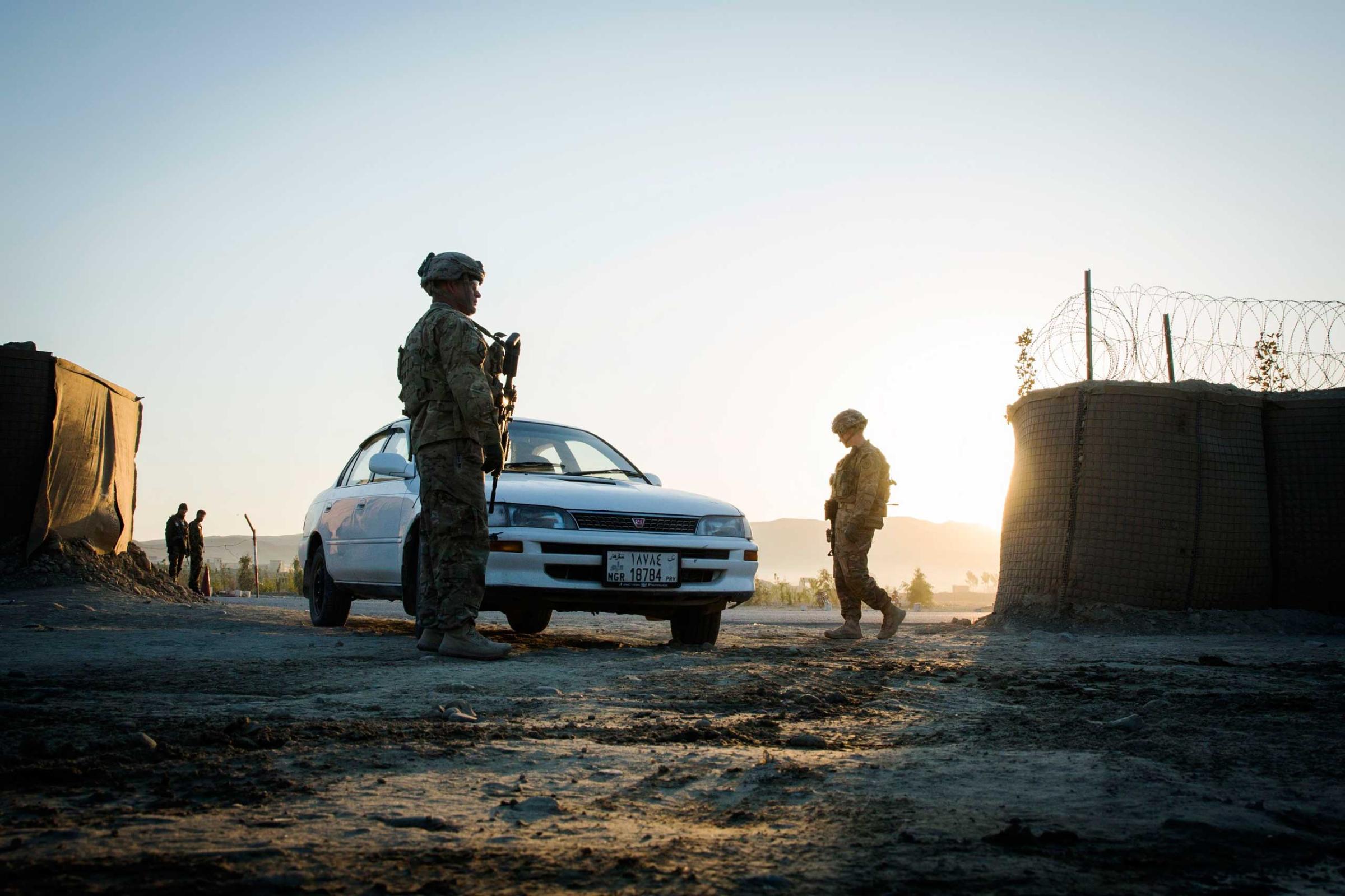


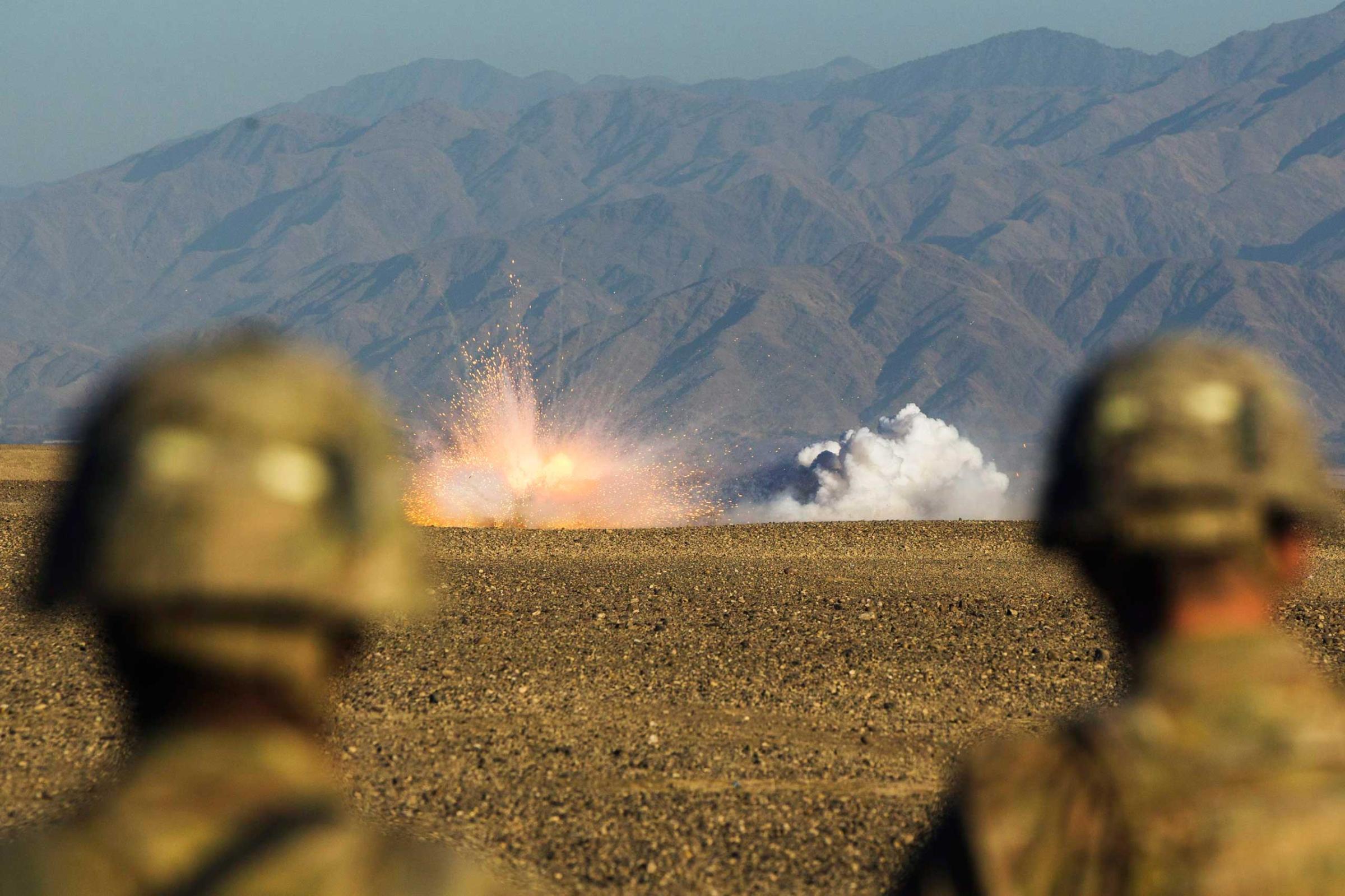





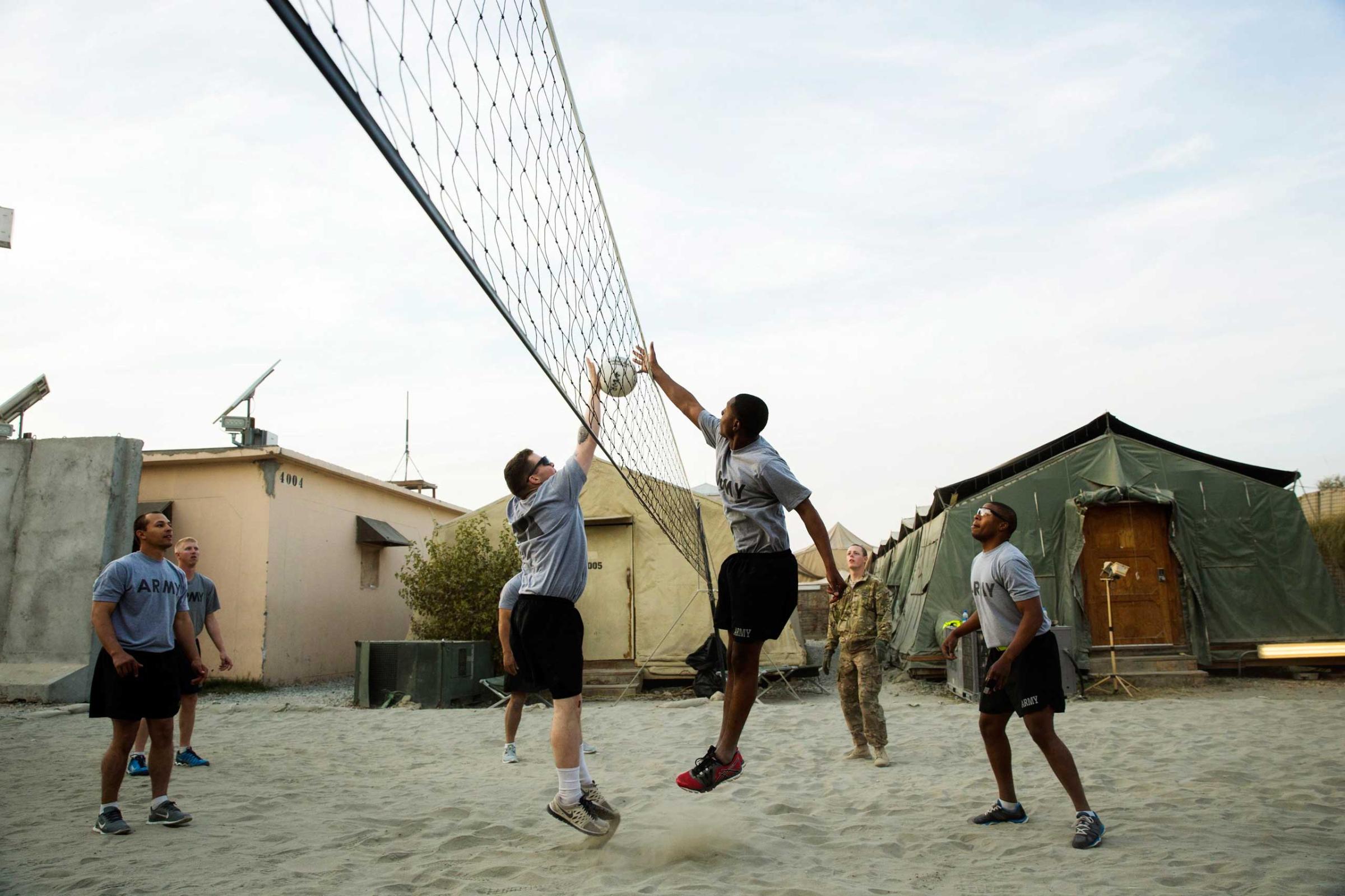
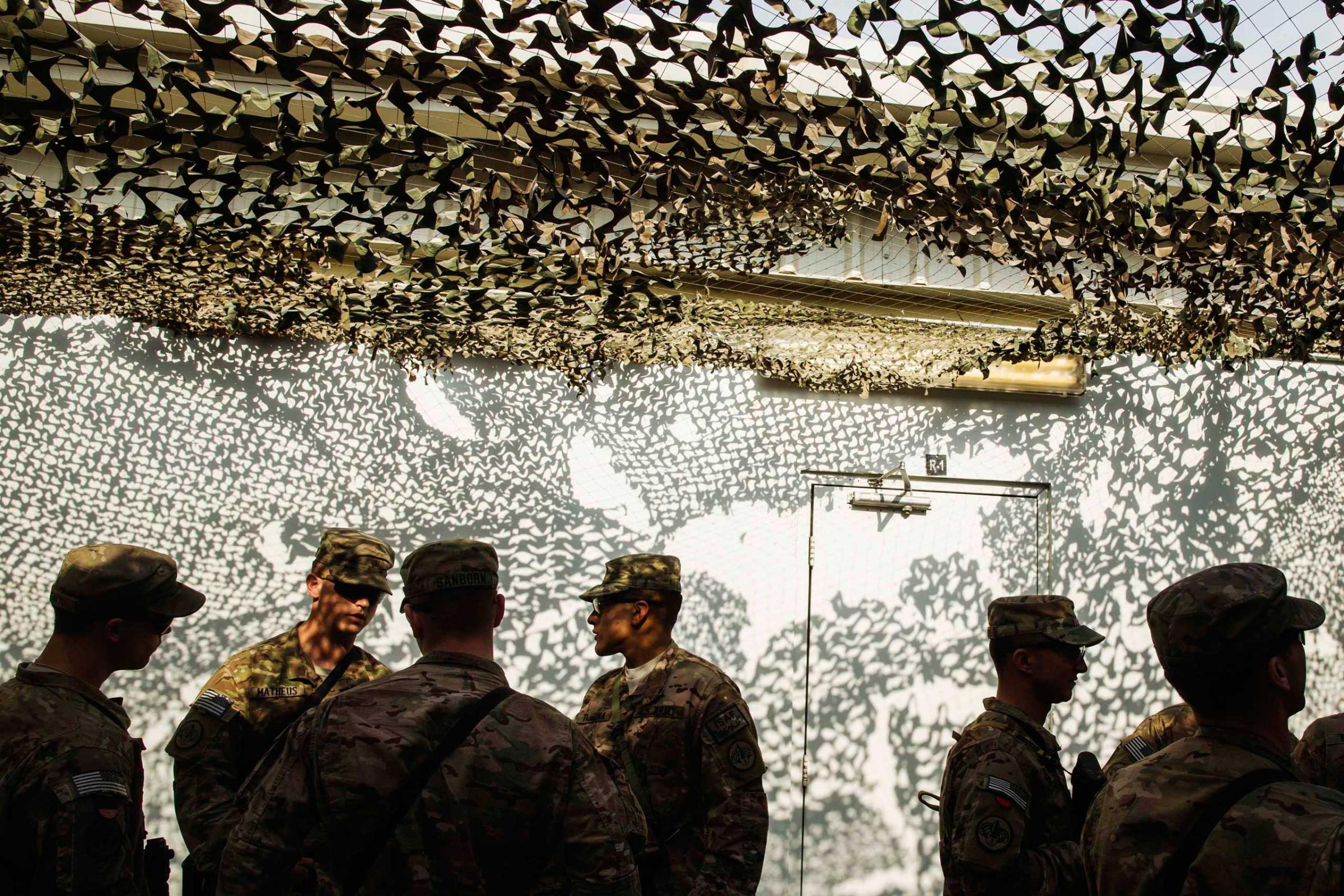

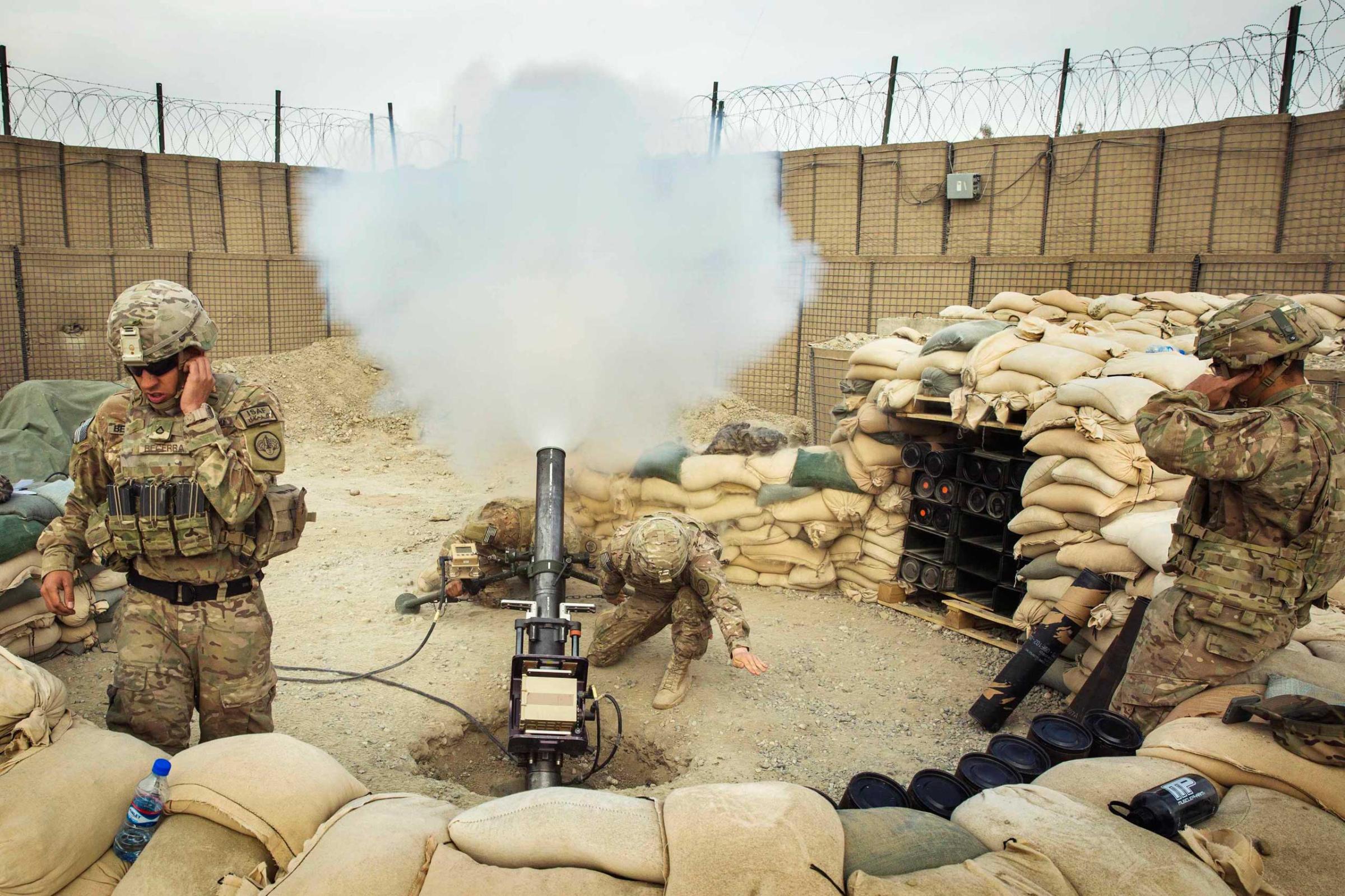
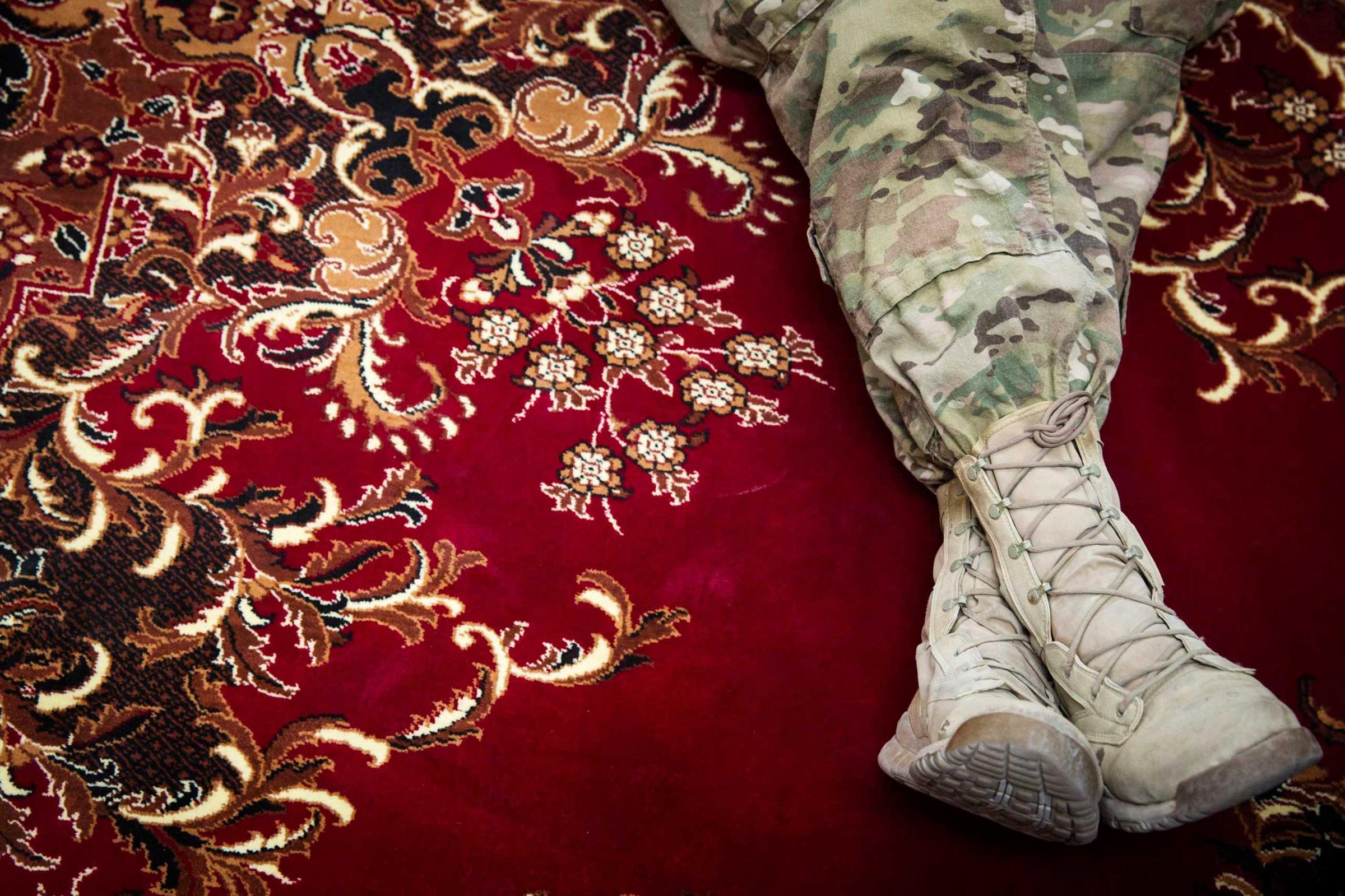


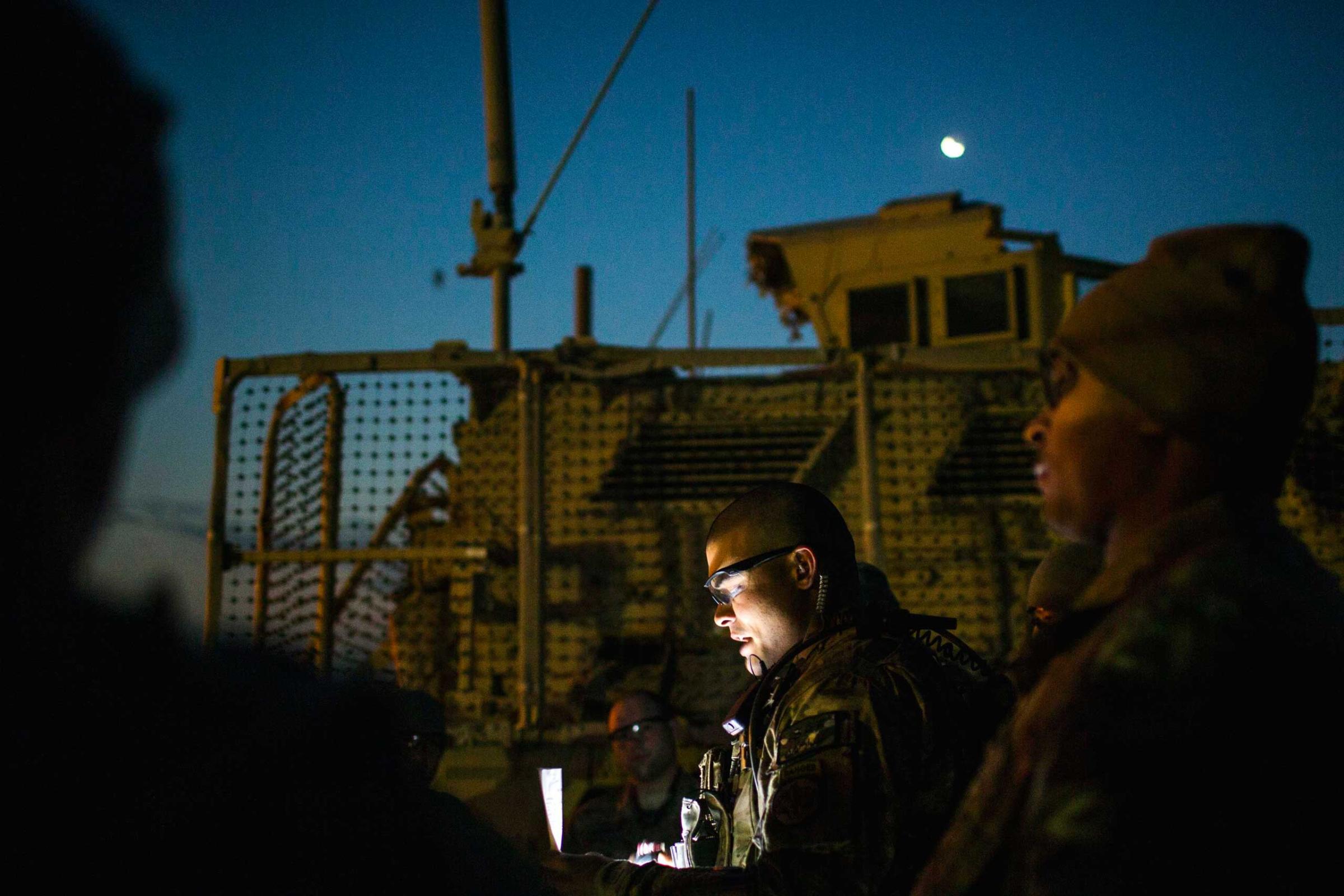
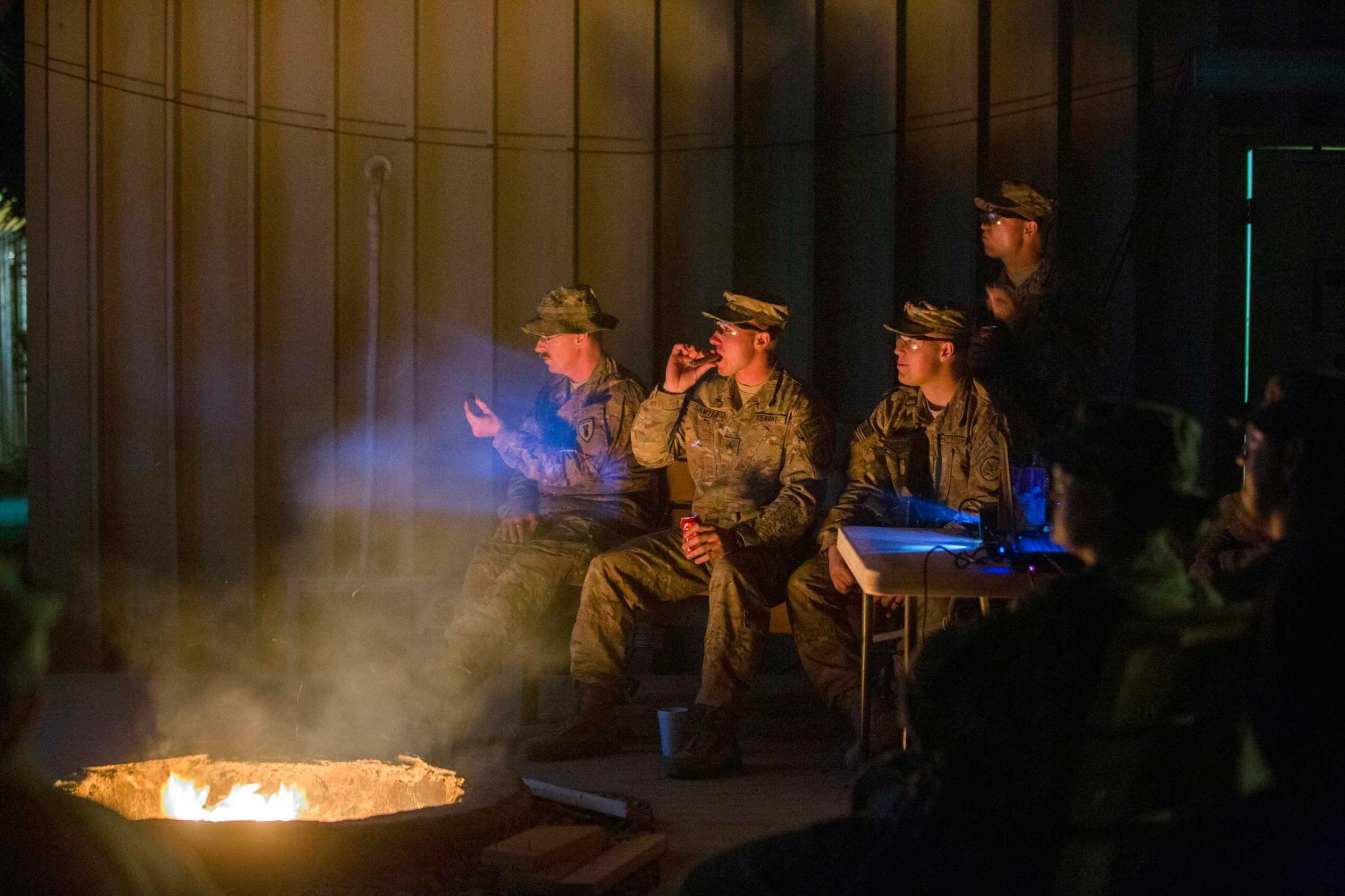
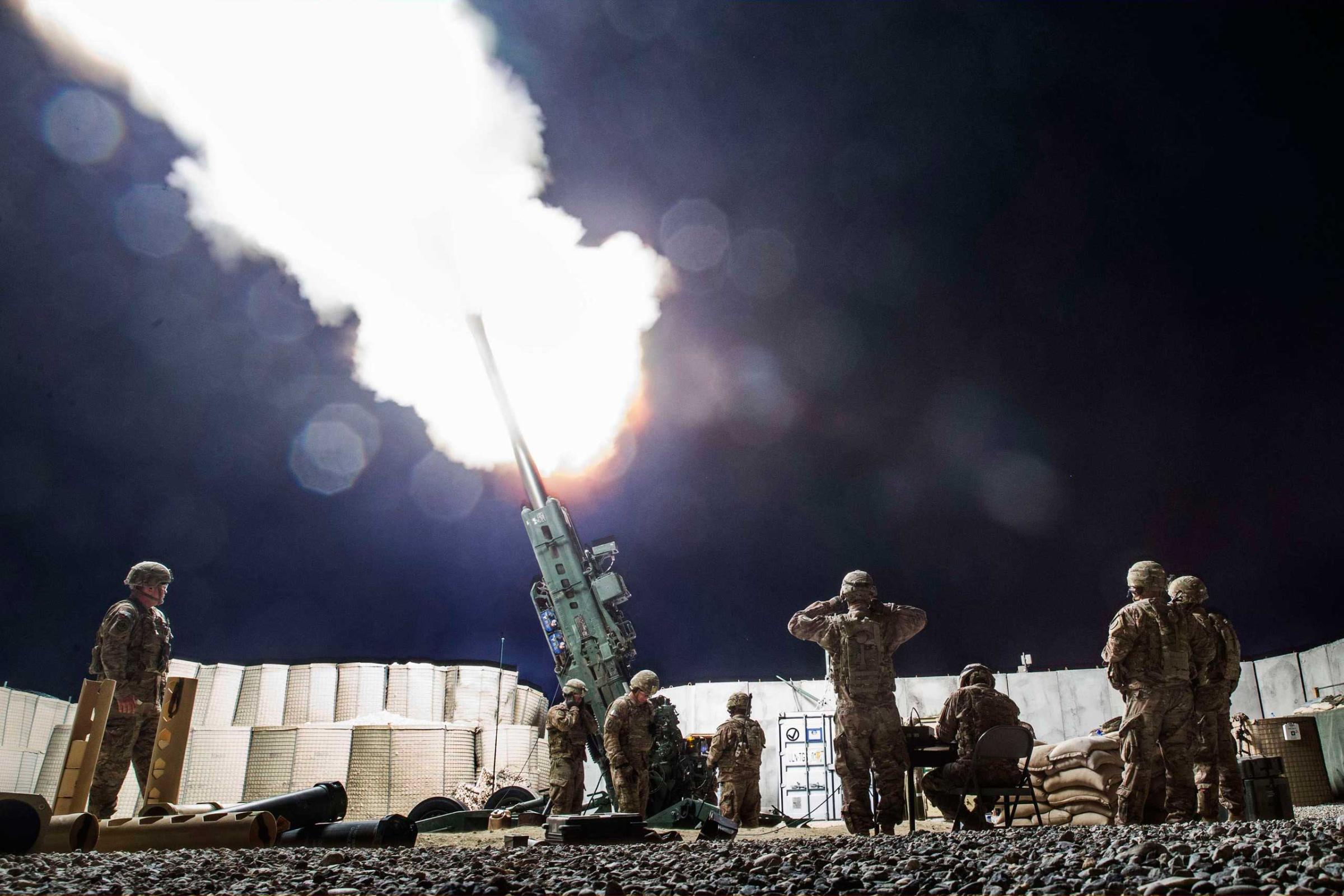

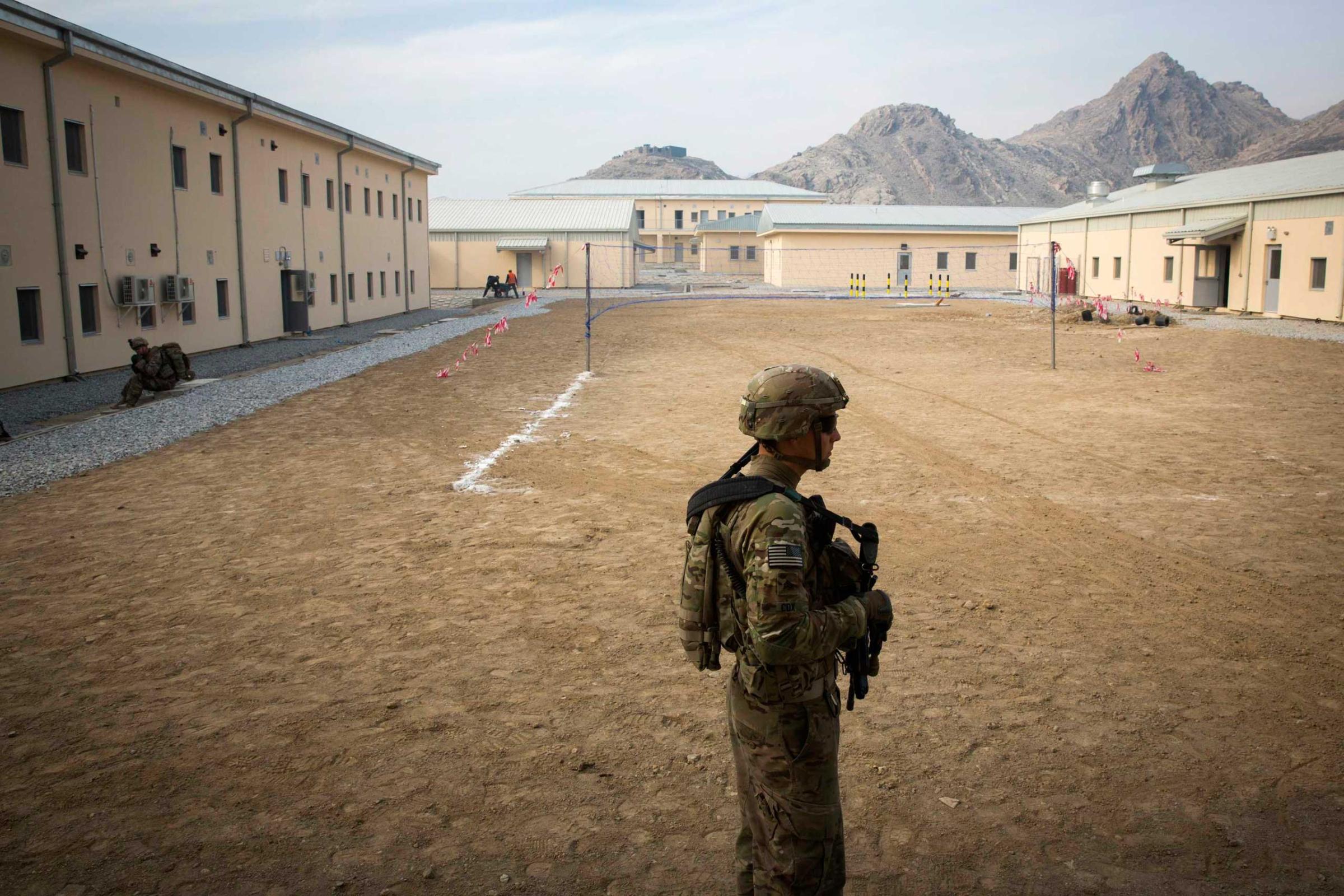


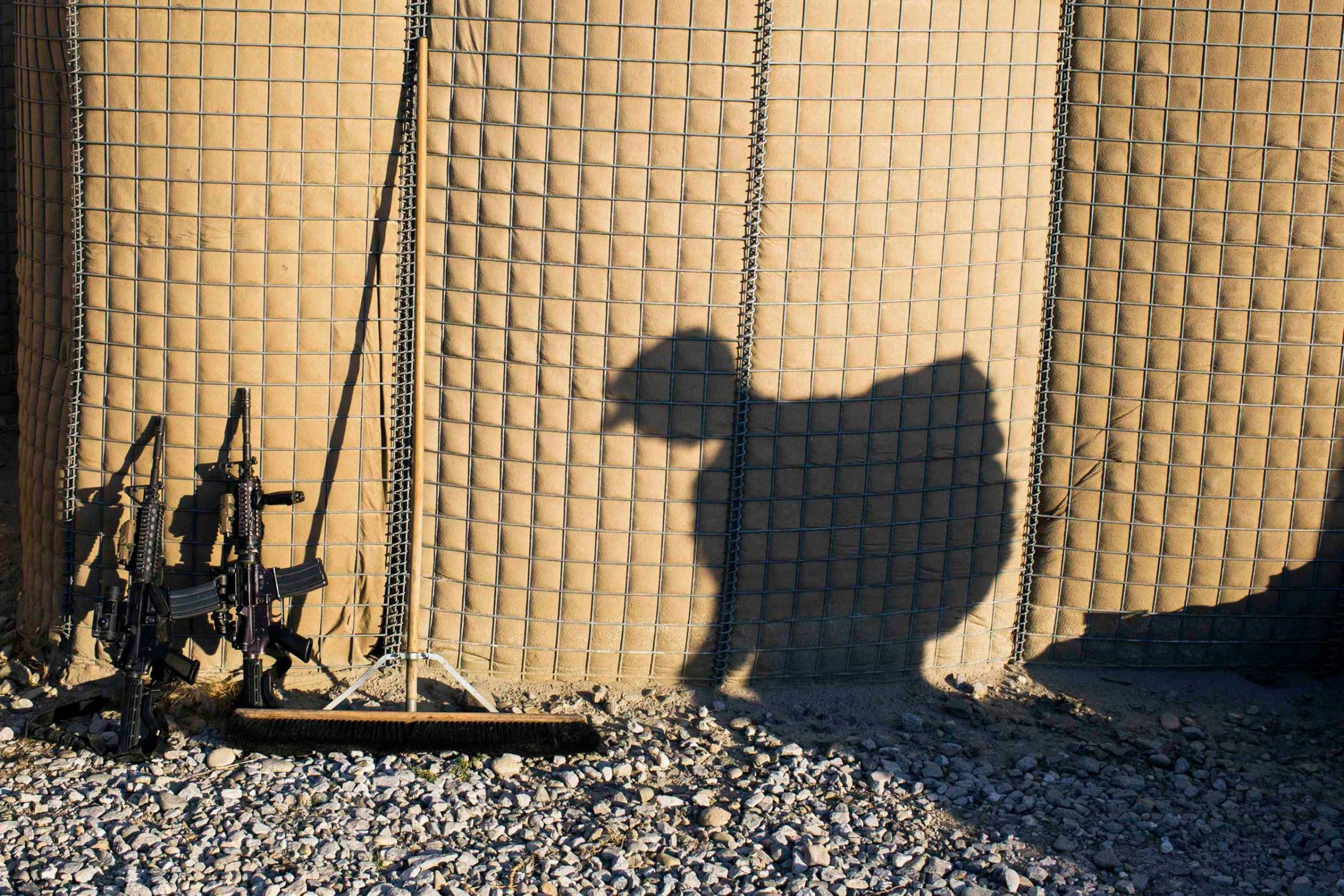
Research shows that reducing uncertainty reduces fear. According to Dan Coyle, before the Bin Laden mission SEALs built two full scale replicas of the building they’d be entering and practiced the raid for three weeks.
(For more on how a good attitude promotes success, click here.)
So what do you do after you prepare?
5) Focus On Improvement
When you frame things as a win/lose scenario and they don’t go well, you’re a loser. And so you quit.
When you take the perspective that everything is a learning experience, there are no winners or losers. And you just keep getting better. James said this attitude is key for SEALs:
Eric, this gets at my point of the SEAL experience, this constant learning, constantly not being satisfied. That’s one of the interesting things about the community: you never feel like you’ve got it all figured out. If you do feel like you figured it out, you probably aren’t doing it right. If you’re not willing to learn from other people then frankly you’re not doing all you need to do to be the best operator you can possibly be. It’s a culture of constant self-improvement and constant measurement of how you’re doing. That’s a theme I think that all SEALs would agree is critical.
Carol Dweck’s research at Stanford shows that a “growth mindset” (believing abilities aren’t fixed and you can improve) is a key element of success. And Angela Duckworth has found this attitude is tied to grit:
…we have found moderate, positive associations between grit and growth mindset, suggesting that growth mindset, like optimistic explanatory style, may contribute to the tendency to sustain effort toward and commitment to goals.
And how do you become an expert? By focusing on your weaknesses, not your strengths.
SEALs take this very seriously, doing a debrief after each mission to review what happened and spending 90% of the time discussing what they could do better next time. Here’s James:
When you go out on a mission, you always acknowledge your successes but much more important than that is you take a hard look at your failures and are willing to accept criticism. One of the key strengths of the SEAL Teams is the culture of constant self-improvement. No one ever says “That’s good enough.” On almost every real world mission I was on – even the most successful ones – we spent 90% of our post-mission debrief focusing on what we did wrong or could have done better.
Some of you are thinking, “Oh, they’re SEALs. They were just born experts.” Not true. As Angela Duckworth’s research on grit shows, gritty people often start out less talented. But by hard work they end up better than the naturally gifted:
Our research suggests that prodigious talent is no guarantee of grit. In fact, in most samples, grit and talent are either orthogonal or slightly negatively correlated.
(For more on the science of how you can become an expert at anything, click here.)
So maybe you’re doing all these things and are well on your way to grit Valhalla. Great. But you can’t do it alone.
6) Give Help And Get Help
James had buddies who supported him and who he gave support to. Lone wolves don’t make it in the teams. Here’s James:
The people who make it through BUD/S are the guys to whom the team matters more than anything, including their own pain. Many of the guys who quit at BUD/S are, on the other hand, people who frankly just don’t care as much about that stuff. You’ll be carrying a log in training that weighs a few hundred pounds and you’re carrying it with six guys for two and a half hours. Among other reasons, those who quit don’t seem to feel much remorse when they duck out from behind that log and ring the bell so they can take a shower and be done. Guys who ultimately make it would never even think about doing that because, even if they were in such dire pain, they just would never do that to their teammate.
The benefits of getting help are obvious. But by giving help and taking on the role of caretaker we increase the feeling of meaning in our lives. This helps people in the worst situations keep going.
As The Power of Habit author Charles Duhigg explained, having a support network is vital to improvement. Seeing others achieve goals makes us believe we can. James expressed this same point about BUD/S:
You’ve got to have that voice in your head that’s like, “Okay, I’m here to do this. I knew that it was going to be hard. At the end, I’m going to get to do something a lot cooler. If all these guys can do it, I can certainly do it.”
(For more on how you can increase your willpower, click here.)
5 Horrible Habits You Need to Stop Right Now





Grit is great but what keeps us motivated when we’re under the most intense pressures imaginable and nothing seems to be going right? It’s the little things.
7) Celebrate Small Wins
The research on motivation is clear: “small wins” are a big deal. Taking a moment to appreciate the little good things that happen is far more motivating than thinking you need to win that Nobel Prize or Academy Award before you’re allowed to be happy.
James said almost the exact same thing about BUD/S. Appreciating the small fleeting victories is essential to getting through the hard moments like the infamous “Hell Week”:
When you’re at BUD/S, it’s the small victories that matter. Let’s say you made it through a two and a half hour long PT session. You throw that log down, get together with your class, and go run a mile to dinner. That’s a small victory. It feels good. You sit down, have a nice meal, and feel like everything’s great. Then as soon as dinner is done, the instructors see you and say, “Go get wet and sandy.” They torture you again and you’re back down into the muck. BUD/S is a constant cycle of peaks and valleys. Even your brightest moments are constantly transformed into bad ones. When you finish Hell Week you feel like you’re on top of the world until you realize you still have nearly a year of training left to go. But you’ve got to be able to accept these peaks and valleys, these small victories and recognize that, yes, so many things are bad but they do have a start and an end.
The research on happiness agrees too: Lots of little good things beat infrequent great things when it comes to how good we feel.
(For more on how you can be more motivated, click here.)
Enough big fancy concepts and nerdy research. What’s something dead simple we’re all familiar with that SEALs and academics agree can help us be resilient when the world is treating us bad?
8) Find A Way To Laugh
A while back I interviewed Army Ranger Joe Asher and he said this about making it through the punishment of Ranger School: “If I can laugh once a day, every day I’m in Ranger School, I’ll make it through.”
James said the same thing about SEAL training:
You’ve got to have fun and be able to laugh; laugh at yourself and laugh at what you’re doing. My best friend and I laughed our way through BUD/S. We still tell the same jokes whenever I talk him. It’s one of my best memories of going through BUD/S. There’s something about when you’re facing a really crummy situation, to look over at your friend and see him smile. It tells you, “Alright, I’m going to be fine. We’re going to be fine and it’s all going to work out.”
Experts say that humor provides a powerful buffer against stress and fear.
Via Nerve: Poise Under Pressure, Serenity Under Stress, and the Brave New Science of Fear and Cool:
“Humor is about playing with ideas and concepts,” said Martin, who teaches at the University of Western Ontario. “So whenever we see something as funny; we’re looking at it from a different perspective. When people are trapped in a stressful situation and feeling overwhelmed, they’re stuck in one way of thinking: This is terrible. I’ve got to get out of here. But if you can take a humorous perspective, then by definition you’re looking at it differently — you’re breaking out of that rigid mind-set.”
(For more on how to be funny, click here.)
Let’s round this up with the key takeaways from James and the research.
Enough Reading. Time For Doing.
What we can learn from James, the SEALs and the research on how to have grit:
Real grit and dedication pays dividends long after the challenges are over. They build bonds that last a lifetime.
After James left active service he found out one of his teammates had tragically died in a training accident. Most of the platoon had already left their Hawaii training base and relocated all over the country.
But they all returned for the memorial service. Every single one. And it never occurred to him that everyone wouldn’t. Here’s James:
We had guys in Colorado, Nevada, Virginia, Georgia, and Florida – really all over the place. There was just no question we’d all come back for the memorial service. No question. Everybody was there and it was a really sad, sad event and we all miss Matt a lot… I was so proud of our guys. I think it said a lot about the quality of our experience and the caliber of our guys that there was no question they’d return. I think a lot of SEAL platoons are exactly like that. It was just nice to know that everybody’s got each other’s back, just like we always did.
In my next weekly email I’ll have more from James including his analysis of the type of people who make it through SEAL training (and people who don’t), along with discussion of the four methods the Navy used to increase SEAL passing rates. To make sure you don’t miss it, join here.
This piece originally appeared on Barking Up the Wrong Tree.
Join over 161,000 readers and get a free weekly update via email here.
Related posts:
6 Hostage Negotiation Techniques That Will Get You What You Want
How To Get People To Like You: 7 Ways From An FBI Behavior Expert
How To Stop Being Lazy And Get More Done – 5 Expert Tips
More Must-Reads from TIME
- Donald Trump Is TIME's 2024 Person of the Year
- Why We Chose Trump as Person of the Year
- Is Intermittent Fasting Good or Bad for You?
- The 100 Must-Read Books of 2024
- The 20 Best Christmas TV Episodes
- Column: If Optimism Feels Ridiculous Now, Try Hope
- The Future of Climate Action Is Trade Policy
- Merle Bombardieri Is Helping People Make the Baby Decision
Contact us at letters@time.com